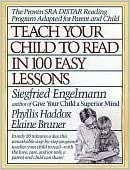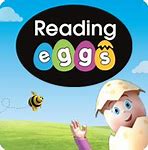Help! My Child Still Can't Read
- Under One Roof
- Oct 6, 2021
- 3 min read
If you are new to homeschooling and you have a young child, you probably have visions of your children posed all around the house with a book in hand reading the day away. You have heard from all of your friends about their children and the volume of books they consume each week. But then reality sets in and you realize you actually have to teach your kid to read.
My first comment to you is to take a step back and breath. Don't compare your child to anyone else. Just because children are now taught to read in Kindergarten and children go to Kindergarten at age five we have somehow assumed that all children will read when they are five years old. Nope. Not true. May not happen.
Think back on your Kindergarten days. Did you learn to read Frog and Toad? Probably not. When I was in Kindergarten, it was a half day program. And during those 3 hours, we had recess, nap time, art/music/gym and snacks. We learned our colors and how to write and read our own names. Today's Kindergarten class is expected to go way beyond that. My next door neighbor was in such a panic when the school sent out a list of what her five year old was supposed to know BEFORE the first day of school that she contemplated getting a tutor for that poor child.
Just because a bunch of politicians mandate that children will be able to read at age five does not mean they all will.
If your five year old is not reading yet, don't panic. Your child may not be ready to read yet. There are many things you can do to help your child get ready. Surround your child with books to look at in his free time. Go to the library and check out all kinds of books. Read out loud to your child. Reading the same story over and over actually does help him see the pattern of the written words to the words he is hearing. Listen to books on tape to excite him to the possibilities in books. Surround him with chances to play with letters. Use letter blocks, magnets and other manipulatives. Children are designed to learn through play.
There are many great programs and curriculums available to help you once your child is ready to read. "Teach Your Child to Read in 100 Easy Lessons" is a popular book that focuses on decoding phonics lessons. "All About Reading" is another popular choice. It is actually one of my favorites. It feels more like a text book (if that is what you want) with cute pictures, easy to read texts, manipulatives, worksheets and activities to follow up with the lessons. If you would like to try an online approach, Reading Eggs was a program that my youngest liked for extra help. These choices all start with basic letter sounds to get a child started.
And what should you do when that well meaning relative compares your Johnny to cousin Jenny who is in school and is already reading? Show them the studies that prove that children who learn to read at a later age will catch up to their early reading peers and they won't be able to tell them apart soon. An article in Early Childhood Research Quarterly titled "Children learning to read later catch up to children reading earlier" followed two studies. Both showed that children who had not read until age 7 had caught up to their peers by age 10. (1)
As a homeschool parent you are already doing what the research shows to be the best indicators of school success. You are engaged with your child. You are giving your child plenty of free play time both indoors and outdoors. Hopefully you are playing with your child and exposing them to learning opportunities rather than sitting them in front of a computer, video game or television all day. With time, your child will be ready to read. When that time comes, give them plenty of support and success by starting with basic reading code and watch them thrive.
If your child needs more practice, I have a new set of C-V-C practice worksheets in my store. Each one comes with an emergent reader that focuses on the basic code with very few sight words used to move the story along. You can purchase them by short vowel sound, or save money by purchasing the bundle with all five short vowels. And as they move forward, I have sets with more advanced phonics code.
You've Got This,
Laura
Sebastian P. Suggate, Elizabeth A. Schaughency, Elaine Reese, Children learning to read later catch up to children reading earlier, Early Childhood Research Quarterly, Volume 28, Issue 1, 2013, Pages 33-48, ISSN 0885-2006, https://doi.org/10.1016/j.ecresq.2012.04.004.







Comments